Welcome to Computational Medicine Laboratory!
The Computational Medicine Laboratory (CML) is a multi disciplinary laboratory at the University of Houston’s Electrical and Computer Engineering Department which mainly focuses on designing control, optimization, estimation, and signal processing algorithms for biomedical and neural engineering applications. CML is lead by Dr. Rose Faghih, who has successfully collaborated with various medical doctors in different fields such as endocrinology, psychiatry, and gynecology over the last 10 years. CML focusses on medical cyber-physical systems research and develops biomedical signal processing and control algorithms for human technology interactions, and prognosis, diagnosis, and treatment of pathological conditions related to neuro-endocrine and neuro-psychiatric disorders. CML brings the power of mathematical modeling to biomedical researchers and clinicians to aid in different pathological conditions.
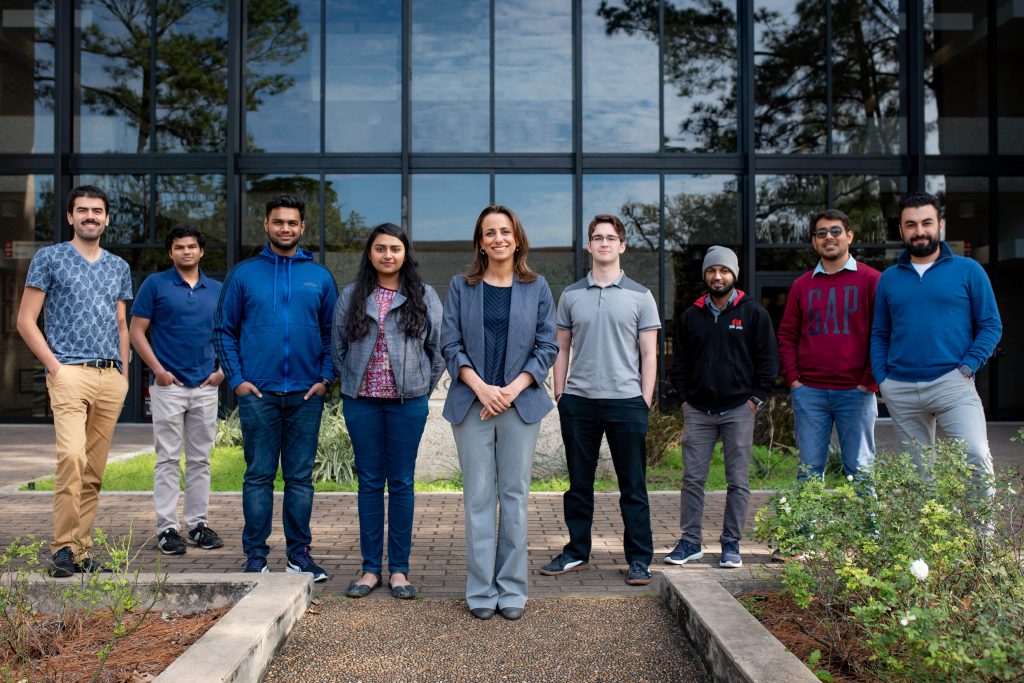
2020 News:

Rose received the NSF CAREER Award for her proposal entitled “MINDWATCH: Multimodal Intelligent Noninvasive brain state Decoder for Wearable AdapTive Closed-loop arcHitectures.” She proposed using smartwatch-like devices to infer states within the brain that are typically inaccessible except via neurotechnologies such as electroencephalography (EEG). Instead, tiny variations in sweat secretions and changes in heart (pulse) rates can be used to infer some of this information, and eventually be used to provide closed-loop therapy for patient care. Read more
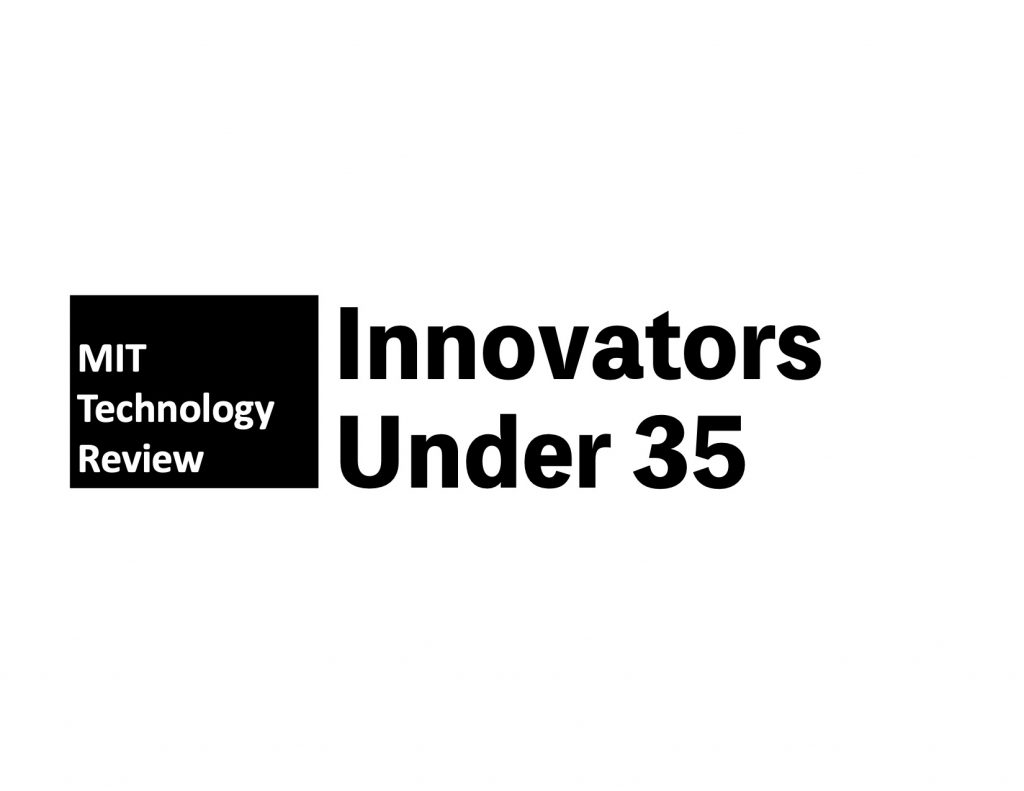
MIT Technology Review selected Rose as one of the visionaries in its list of Innovators Under 35 for the year 2020. The recognition highlighted her idea of sensor-laden wrist-watches that could monitor states of the brain traditionally accessed via neuroimaging technologies such as EEG. The idea would not only have clinical relevance for treating patients with neuropsychiatric or hormone disorders but would also have applicability to people who want to improve everyday health as well. Futuroprossimo, an Italian futurology magazine, also highlighted her as one of the three MIT Technology Review’s 2020 Innovators Under 35 female awardees, who work on an innovation that has the highest potential for a future Nobel prize. Read more

Multiple journal articles were published by CML this year. The journals included IEEE Transactions on Biomedical Engineering (two papers, one on cortisol regulation and another one on sympathetic nervous system activation), IEEE Access, and PLoS ONE. The research work involved sparse recovery with skin conductance and cortisol data and state estimation based on skin conductance and heart rate data. Read more

Our lab reported in PLoS ONE that a person’s sympathetic arousal level could be continuously tracked by monitoring changes in skin conductance and heart rate. This mixed filter algorithm could be embedded within wearable devices for monitoring patients diagnosed with certain types of neuropsychiatric disorders. Read more

Rose presented CML’s research findings at several invited talks. Examples include the Medical Wearables Conference, University of Maryland IEEE Leadership Seminar, MIT Technology Review’s Conference on Emerging Technologies, MIT Neural Signal Processing Seminar, and University of Texas Health Science IoT and Aging in Place Workshop.

The Cullen College of Engineering recognized Rose’s contributions to research and teaching excellence in the 2019-2020 Faculty and Student Excellence Awards. She received a Teaching Excellence Award for outstanding teaching and service to students and a junior-level Faculty Research Excellence Award. Read more

IEEE Women in Engineering (WIE) Magazine recently highlighted Rose as a “Woman to Watch.” Her career from her student days to an assistant professor, her love for writing poetry, and some of her outreach activities were described in an article published in the IEEE Women in Engineering Magazine June issue. Moreover, aside from the IEEE WIE feature, Rose’s work was featured by the IEEEXplore in August. IEEE spotlighted her and drew attention to CML’s work on tracking brain states based on tiny variations in sweat secretions. Read more on the IEEE WIE Feature

Rose was selected for the 2020-2021 Interstellar Initiative, a program by the New York Academy of Science and the Japan Agency for Medical Research and Development. The program seeks to bring together promising young researchers from different countries to address major research challenges related to healthy longevity. Read more

Students in Rose’s “State-space Estimation with Physiological Applications” class conducted a number of projects in modeling the spread of Covid-19 infections in different parts of the world. The students applied point processes to model new Covid-19 infections and created several YouTube videos to disseminate the knowledge to the general public. Read more
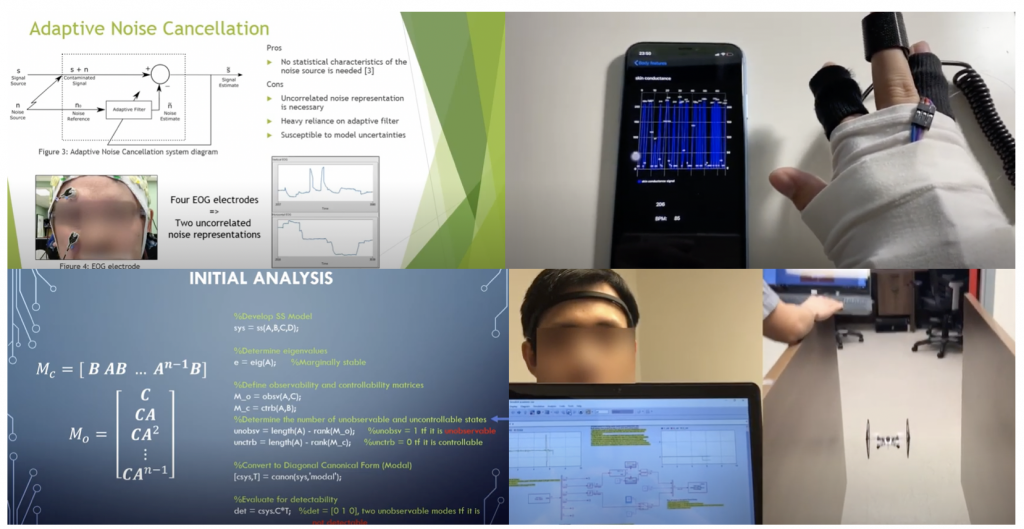
CML continued its public outreach virtually during the pandemic by posting videos onto its YouTube channel. The videos posted this year draw attention to senior design projects, class projects, and several others that are meant as brief tutorials for teaching concepts related to controls. The YouTube videos are part of CML’s broader effort of educating the general public about engineering.

Hamid Fekri has been selected for the UH Cullen College of Engineering Future Faculty Program. The program is intended to prepare top-performing Ph.D. students for a successful career in academia
Jon Genty received a Summer Undergraduate Research Fellowship (SURF) for his summer research at CML. Jon’s work involves analyzing growth hormone and skin conductance data to investigate applications to disease diagnosis.
CML graduate students presented posters at two conferences organized by Rice University: the Theoretical and Computational Neuroscience Conference, and the Ken Kennedy Institute Data Science Virtual Conference. The posters featured some of CML’s latest work on sparse deconvolution, estimation, and control with regard to recovering unobserved brain states from peripheral physiological signals.
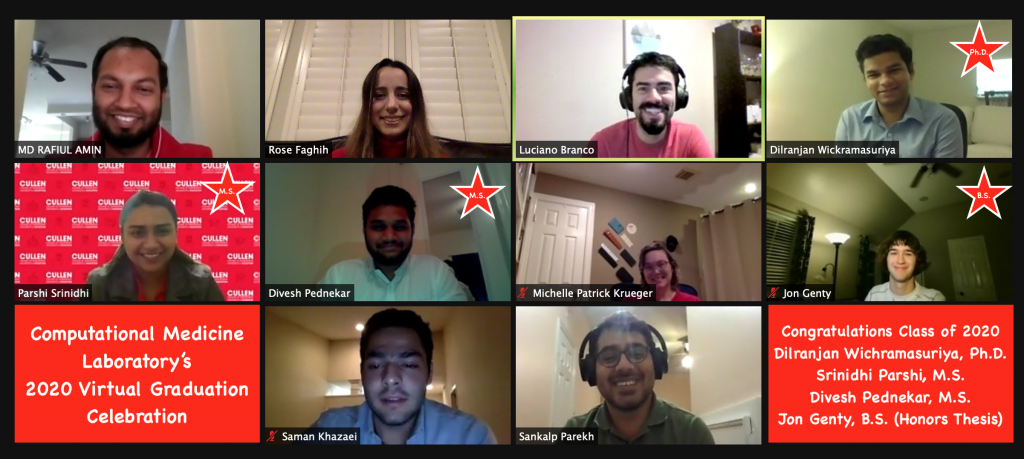
Four CML students graduated in 2020. Dilranjan Wickramasuriya successfully defended his PhD thesis in December 2020 as the first PhD graduate of CML. Srinidhi Parshi and Divesh Pednekar successfully defended their M.S. theses in May 2020 as the first two M.S. graduates of CML. Jon Genty successfully defended his undergraduate Honors thesis in November 2020.
2019 News:

Rose was selected to attend the US Frontiers of Engineering Symposium organized by the National Academy of Engineering. Read more

Our lab reported in Frontiers in Neuroscience that a closed-loop brain stimulator, based on sweat response, can be developed for those who suffer an array of neuropsychiatric disorders. This research was covered by UH News, Science Daily, Psych Central, EurekAlert, New Medical, Biospace, Neuroscience News and other online news portals. Read more

Rose presented CML’s research findings at several invited talks. Examples include the Institute for Computational Medicine Distinguished Seminar Series at the Johns Hopkins University, the Biomedical Engineering Seminar at the University of Connecticut, Technology Collaboration Center Wearable Technologies Workshop at NASA Johnson Space Center, Industrial Engineering Seminar at the University of Houston, and the Invited Special Session on Wearable Sensor Informatics for Cardiopulmonary Monitoring at the IEEE Conference on Biomedical and Health Informatics. Read more

Multiple journal papers were accepted for publication in the IEEE Transactions on Biomedical Engineering (TBME) and IEEE Access. Read more

CML members attended the IEEE Engineering in Medicine and Biology Conference (EMBC) in Germany and gave six presentations there. Read more

CML members presented five papers at the Asilomar Conference on Signals, Systems, and Computers and the IEEE-EMB Special Topics Conference on Healthcare Innovations and Point-of-Care Technologies at the National Institute of Health. Three of these presentations were projects from the “State-Space Estimation with Physiological Applications” course designed and taught by Rose where two CML Ph.D. students served as teaching assistants. Moreover, another paper was based on one of the summer National Science Foundation Research Experiences for Undergraduates projects at CML. Read more
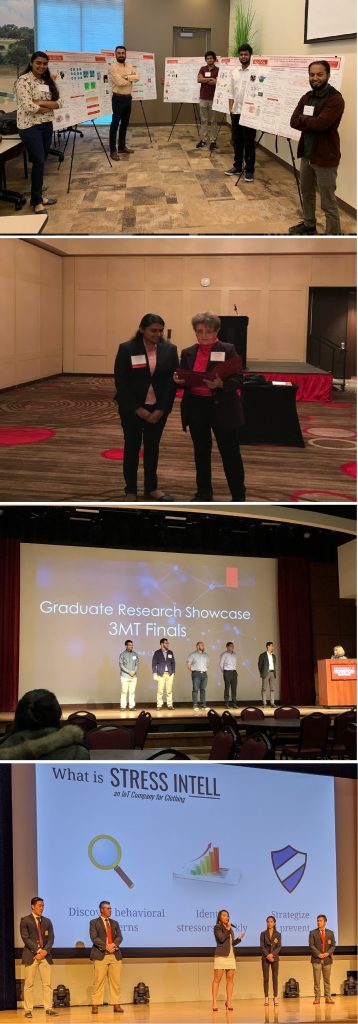
Srinidhi Parshi came second at the ECE Dept. Graduate Research Conference and received the 7×24 Exchange International South Texas Award.
Srinidhi Parshi received the National Science Foundation student travel award at the IEEE Biomedical and Health Informatics Conference.
Dilranjan Wickramasuriya received an Honorable Mention Award for his poster at the Graduate Research Showcase.
Dilranjan Wickramasuriya, Hamid Fekri, and Md. Rafiul Amin received the Cullen Fellowship Travel Grants to attend IEEE conferences.
A team of undergraduate senior design students mentored at CML came second in the ECE Dept. capstone design competition.
Undergraduate Samantha Havens received a Summer Undergraduate Research Fellowship for her research at CML.

In 2019, we hosted over 80 girls at CML as a part of the Chevron Girls Engineering the Future event.
